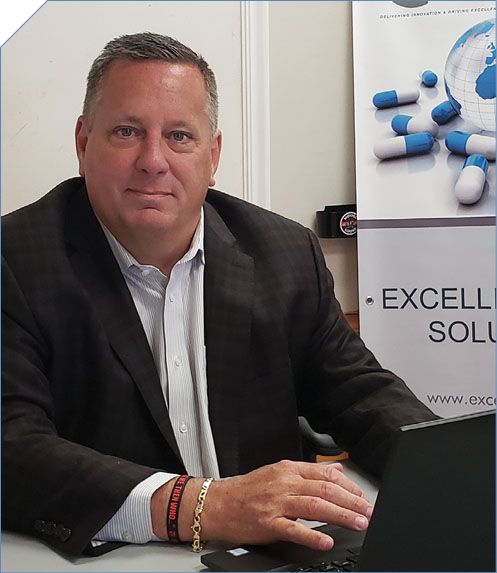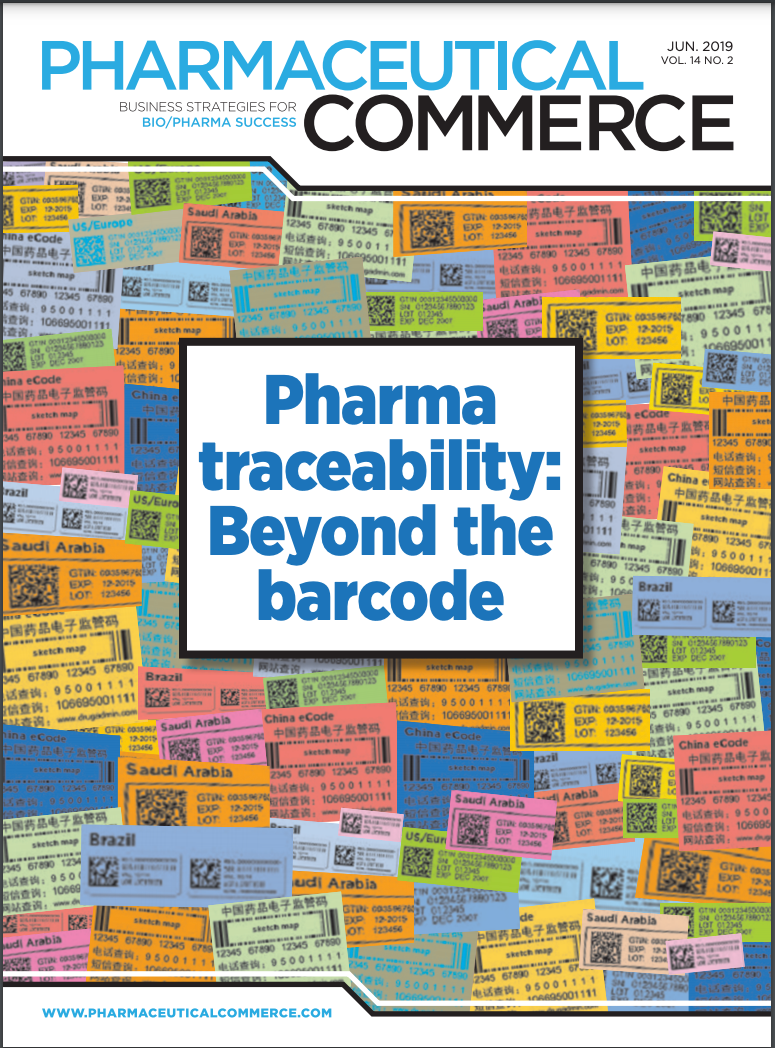A Conversation with Greg Cathcart, Excellis Health Solutions

Excellis Health, now a global consultancy and managed-services company, was founded in 2010 to address the growing industry needs around supply chain management, traceability and compliance.
It now has operations in the US, Europe and India, and recently announced a partnership with a Russian firm for that country’s traceability initiative.
Along the way, it developed expertise to perform strategic consulting, install serialization systems, and provide managed services for IT system validation and maintenance. Earlier this year, Excellis announced a partnership with Systech International; each company will support the other’s efforts.
Pharmaceutical Commerce sat down with Greg Cathcart, Excellis cofounder and CEO; here’s what he had to say.
1. Greg, you’ve got a long history in the pharma supply chain / traceability arena; let’s review, and describe your thinking when you started Excellis.
GC: Prior to forming Excellis, my management team had generally worked together for the prior 20+ years in differing companies, including biopharmas like J&J and Genentech. We believed our industry knowledge would be helpful to the Life Sciences Industry in the areas of supply chain, manufacturing, quality and IT. So we formed Excellis Health in 2010, just as the market was crashing and the world was coming to an end….
2. The current status of Excellis services ranges from packaging line implementations to corporate strategy for overall supply chain management. Give us some sense of how Excellis differentiates itself from other providers in this space.
Our methodology is “Strategy to Sustainability.” Basically working with our customers to strategize on what they need to accomplish, and once implemented how they need to maintain or sustain the solutions deployed to managed their IT infrastructure.
Since inception we have focused on hiring some of the brightest industry minds to join our company, as we believe knowledge is key to success.
3. What’s the likely series of events leading up to 2023 for the pharma industry? For retail pharmacy, or health systems? Will all of these trading partners be onboard and ready by then?
Our industry surveying tells us that perhaps 99% of pharma products in the US are now serialized—but the key is, getting to that step represents only about 20% of what DSCSA is about. The saleable returns task is now in front of us, and that will need policies and procedures. From Excellis’ perspective, there are five more critical goals to be met between now and 2023:
- Case aggregation
- Warehouse data and operational management
- Distribution center (as distinct from mfr warehouses) management
- Downstream onboarding of pharmacies and health systems
- Ensuring system interoperability.
In our opinion there is still a LOT of work & education that needs to take place to bring the Retail/Hospital Dispensers into a Serialized world. Many of the folks in this side of the Supply Chain still are not even thinking about their plans to support DSCSA, and that scares us when we look at the timelines to compliance. We believe that many of the executives in this space do not believe the FDA will interfere in the flow of Pharma Commerce at the expense of Product Shortages in the Supply Chain—so they believe they have no timing pressure on the compliance dates.
4. What are the operational expectations of the Systech partnership? Will Excellis be implementing Systech solutions?
Systech is the leading software solution with their Unisecure solution to assist brand management & brand security teams to support their initiatives. Excellis’ role is to be the strategic consulting partner to the client as well as the Systech solutions they might acquire. It’s worth emphasizing, though, that Excellis is a reseller of several competing Level 4 systems, and that we approach each client engagement agnostically.
5. You’ve been fairly outspoken on the present focus of pharma manufacturers on only meeting compliance requirements, and not looking for downstream business value. Is that still the case in 2019? What, in your opinion, is the “mood” of the industry in taking advantage of serialization capabilities?
I believe the mood is turning in some areas, but not broadly. Some leading companies are recognizing value now. Here’s an example: a leading oncology provider has a product with multiple indications. It formed a relationship with a health system so that the health system reports back, on an item-level basis, what indication that drug was used for, which is extremely valuable information, not otherwise obtainable, for the product brand managers. You can foresee that this approach will be able to tie products at the item level with patient outcomes, eventually.
6. What’s your personal stake in Excellis’ work, other than creating a firm that has value in the life sciences industry?
In 2008 I went to work as SVP for a company focused on supporting the pharma industry as they prepared for the CA Pedigree regulations. My first day on the job, I flew to the Boston HQ to meet my team; at the same time my wife was taking my 11 year-old son to the doctor, as he was having some dehydration issues. At, 11 am that morning, in my first meeting I received a call from my wife—she and my son were being rushed to CHOP (Children’s Hospital of Philadelphia), as the doctor suspected he had Type 1 Diabetes and needed to get to the hospital for treatment immediately. After seven very scary days, we were able to take him home, but with a lot of fear on how to support him in his treatment. As I returned to my work, and dug into the industry issues, I realized I could make a difference to ensure that his drug treatment was safe for his needs. Hence my personal connection to track-and-trace in the pharma world.
